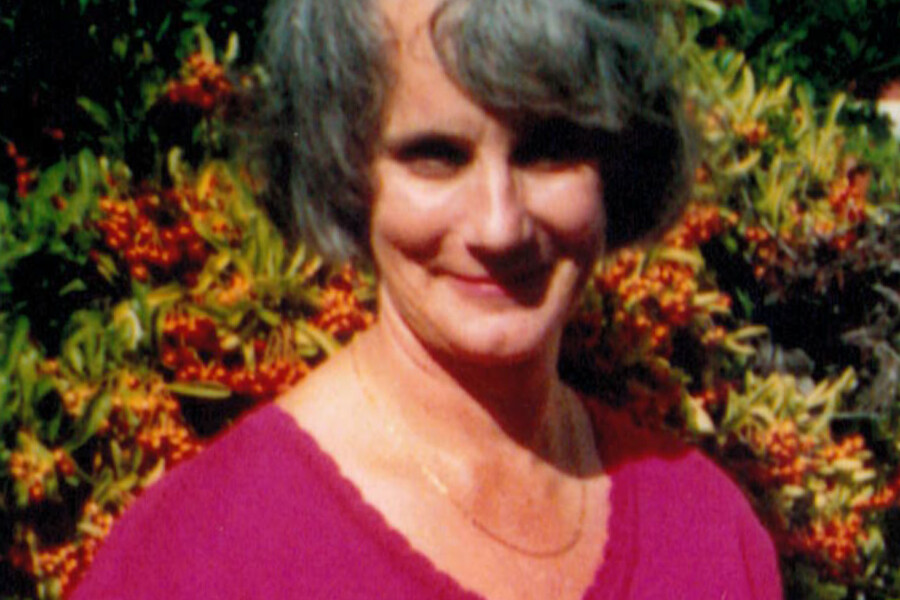
How a shift in the philosophy of care helped transform the lives of children and their families
This story is part of a series that celebrates the legacy of the Queen Alexandra Centre for Children’s Health, paying tribute to the origins of Children’s Health Foundation of Vancouver Island and the work we do today.
Susan Nickum knows a thing or two about compassionate care. With decades of experience in medical social work, she’s seen how a few small changes can make a big difference.
A seismic shift began at the Queen Alexandra Hospital for Children (QAH) in the late 70s when the Director of the Pearkes Centre discovered that QAH didn’t have a social worker on staff. He convinced the hospital administration to create a social work department and hired Pearkes Centre social worker Dewey Callahan as the first Director of Social Work.
Susan came to the renamed Queen Alexandra Centre (QAC) in 1980 when Dewey began to shift the Centre’s primarily physical and medical care to one that focused on the child’s developmental, familial, and social needs. Previously, QAC’s inpatient population had changed from the rehabilitation of children following traumatic accidents, surgery, polio, cerebral palsy, and muscular dystrophy to include children discharged from Vancouver and Victoria medical institutions. They all had physical and cognitive impairments requiring total care.
A change in services
Susan was responsible for contacting and visiting the families of children who had been in 24-hour care for many years. Families lived throughout the province, and the Centre was a medical institution, meaning the kids were well cared for, but the primary focus was their medical needs. Families weren’t encouraged to visit or be part of the care team, thinking it was best for the family and the child.
“The ethos was to leave the child’s total care to us,” says Susan.
Susan, Dewey, and a few key staff saw the opportunity to approach children’s care from a holistic sense. Rather than focusing on some aspects of the children’s needs – their physical and medical care – they considered the social, mental, and environmental factors that contributed to the children’s overall wellbeing.
A new Executive Director came to the QAC in the early 80s and ensured the children were classified by the Ministry of Health as Rehab, not Extended Care. This provided more funding for rehab practitioners, including a volunteer coordinator and a Family Advocate. School teachers experienced in dealing with children with developmental delays were hired. Dewey and other department heads worked with the newly formed Queen Alexandra Foundation to support the costs of augmented service delivery.
The philosophy of care
Eventually, Susan moved into the role of Program Manager, but not without witnessing many changes. One such change was the expansion of the facility to a more vibrant children’s rehabilitation centre. A Victoria pediatrician, the late Dr. Basil Boulton, made a big change in the Centre’s ethos, focus, and ambiance. The facility moved from a medical model to a child and family-centred care model.
“He sometimes used the [phrase] ‘a revolution,’” says Susan.
This transformation combined the QAC with the nearby Pearkes Centre. This meant more daycare, more nurseries, and more opportunities for children to live fuller lives. Families had the opportunity to visit their children, and even stay overnight.
This completely switched the way people viewed continued care. Instead of considering the child as a singular entity, people were viewing the child in terms of their relationship to the family and/or volunteer companions.
A fond memory
Susan often thinks of her time at QAC, and there are lots of memories, but one stands out. She remembers, decades ago, inviting a mother to visit her three-year-old son. The mother was encouraged, as was common at the time, to leave her disabled son to the care of QAC medical staff. She hadn’t seen him in a few years.
“Now, this was a child under five who was micro cephalic, which means he had a very small head. He was blind and had the most amazing smile. He was a happy child,” explains Susan. “When his mother came, she saw him rolling around on a mat in his room. She picked him up and put him on her shoulder and I watched her walk with him and pat him on the back. And that was pretty much it. She just suddenly was right there.”
Above all, the family unit was better for children’s wellbeing, and social workers like Dewey and Susan were the catalysts in this evolution.
“Bonding between child and parent or loved one is very, very important,” Susan said. “We all cared deeply about the work that was done there to enhance the lives of these children with such complex needs.”
Susan Nickum retired in 1998. She is one of many who’ve worked hard to improve care for children and families in BC. We’re grateful for her years of devoted service, her unwavering compassion, and her philosophy of care.
Leave a Reply
Want to join the discussion?Feel free to contribute!